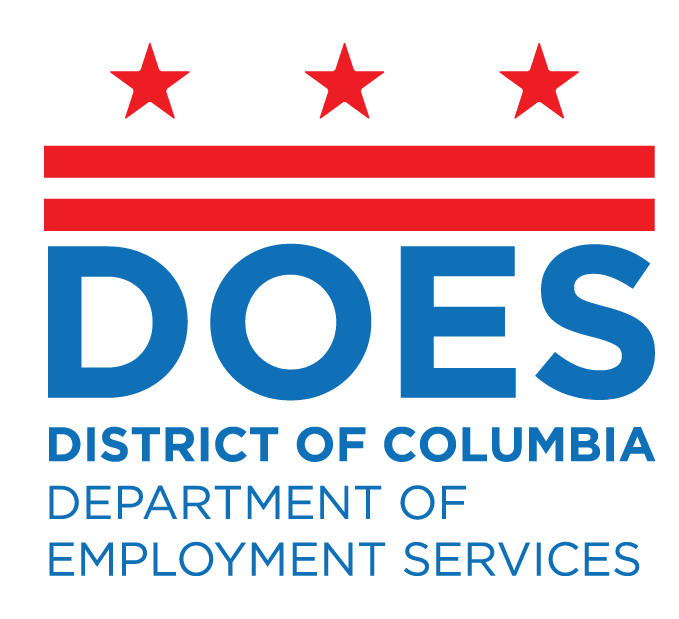What is PE?
The District of Columbia Project Empowerment Program (PE) provides supportive services, adult basic
education, job coaching, employability, life skills and limited vocational training, and job search assistance to
District of Columbia residents living in areas with high unemployment and/or poverty levels. PE seeks to help
alleviate widespread joblessness among the District’s hard-to-serve population with multiple employment
barriers and successfully move them into the workforce.
The District of Columbia Project Empowerment Program (PE) provides supportive services, adult basic
education, job coaching, employability, life skills and limited vocational training, and job search assistance to
District of Columbia residents living in areas with high unemployment and/or poverty levels. PE seeks to help
alleviate widespread joblessness among the District’s hard-to-serve population with multiple employment
barriers and successfully move them into the workforce.
Whom We Serve?
The District of Columbia residents who benefit from our services must be:
The District of Columbia residents who benefit from our services must be:
-
22-54 years old
-
District of Columbia resident (as verified through DMV records, lease, or judgment/commitment papers)
-
Currently unemployed
-
Not receiving government assistance, such as TANF or Unemployment Compensation (Food Stamps are acceptable)
-
Not currently using any illegal substances (there will be a urinalysis conducted at Orientation)
In addition, all potential PE participants’ must demonstrate a substantial need for intensive employment
assistance by exhibiting at least three (3) of the following:
assistance by exhibiting at least three (3) of the following:
-
Basic skills deficiency, demonstrated by a lack of sufficient mastery of basic educational skills exhibited by CASAS scores below the 8th grade reading level and/or an English language deficiency with an inability to speak, read, or write the English language
-
Lack of secondary school educational credential (high school diploma or its recognized equivalent, “General Educational Development”)
-
A documented history of substance abuse
-
Homelessness
-
A history of Job Cycling in which he/she has not maintained employment for more than one (1) consecutive quarter in the past eight (8) quarters, as verified through UI Wage Bumps
-
A conviction of a felony
How Do We Operate?
The Project Empowerment Program has seven structured components:
The Project Empowerment Program has seven structured components:
Program Orientation – Participants are introduced to PE’s requirements and expectations and gain more insight
on how the program works. Urinalysis will be conducted during orientation.
on how the program works. Urinalysis will be conducted during orientation.
Intake, Assessment, and Case Management – Participants’ life and work skills are assessed and assigned to a
case manager.
case manager.
Supportive Services – Case Managers evaluate participants’ needs and recommend necessary support services
such as substance abuse treatment, transportation assistance, physical or mental health treatment, child care,
business attire, housing, and nutrition.
such as substance abuse treatment, transportation assistance, physical or mental health treatment, child care,
business attire, housing, and nutrition.
Job Readiness/Life Skills Training – Participants attend a four-week Job Readiness/Life Skills work-shop that
focuses on successful entry into the workforce.
focuses on successful entry into the workforce.
Employability Activities – Participants gain important employability skills through subsidized and unsubsidized
employment, educational programs (including Adult Basic Education, GED preparation, vocational skills training, and
on-the-job pre-apprenticeship training).
employment, educational programs (including Adult Basic Education, GED preparation, vocational skills training, and
on-the-job pre-apprenticeship training).
Professional Development – Participants who are ready to work are offered additional coaching and intensive job
search assistance,
search assistance,
Job Retention and Follow-Up – Our Job Retention staff works with new employees for approximately six months to
ensure that they have necessary support to succeed on the job.
ensure that they have necessary support to succeed on the job.
Project Empowerment now has an online registration process. Interested individuals should click the link below to register to attend orientation at DOES Headquarters located at 4058 Minnesota Avenue, NE Washington WDC. Once the registration is completed an Intake Specialist will review your request and respond with a confirmation prior to the next available orientation containing attendance details regarding the specific time and date. Thank you for your interest in Project Empowerment.
Project Empowerment Orientation Registration
Project Empowerment Orientation Registration
Mission
Project Empowerment is a multi-faceted program for District residents who face multiple barriers to employment. The success of Project Empowerment depends upon a broad network of partners, including government agencies, community organizations and area employers. As a mission, the District has established four fundamental goals:
-
Reduce recidivism among previously incarcerated participants
-
Enhance public safety
-
Develop job-ready individuals who will serve as assets to the District’s workforce
-
Ensure program sustainability through periodic enhancements and special initiatives
